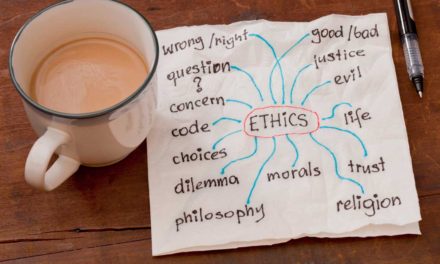Is writing what you remember as truth ethical? A very successful screen writer recently said he relies on his memory to write, rather than on research. Referring to a movie script that might be a 2018 Oscar contender, he said, “It was written almost like a stream of consciousness. I just kept digging and digging, assuming that I’m not telling the truth of things as they happened, but how I remember them.”[1] I wrote another blog not long ago focused on those times when writers say or write, “truth isn’t truth.”
This blog may conflab my earlier one. By definition, conflab happens when you remember something wrongly.[2] Everyone wrongly remembers something every once in a while—the actual date Pearl Harbor was attacked—the second girl you kissed—your class rank—the actual date you quit smoking. But those are memory errors, not writing mistakes.
The ethical issue here is a bit complicated. This fine writer told the interviewer, “[I’m] assuming I’m not telling the truth . . .” In fiction, that’s the deal. We assume we’re making it up. We’re ethical. If we write a fictional screenplay, everything is hunky-dory. But every writer’s antenna should wiggle a bit if we start assuming our memory of what happened is not true and write the memory rather than the truth. We think our memories are reliable, most of the time. They are essential to who we are. Even so, science confirms memories are very complex, subject to change, and often unreliable. Knowingly or not, we reconstruct our memories as we age and as our worldview changes. Some people, innocently but falsely, recall childhood events. Some people, through effective suggestion, create new false memories.
Writers can trick themselves into remembering events we’re writing about that never actually happened. So, for writers the ethical challenge is as complex as the memories we rely on to write about the memory. If we start out assuming the memory is not true, we’re done for. We write fiction, not truth. That’s perfectly alright as long as it’s presented in a way that does not mislead the reader, or viewer into thinking those memories are infallibly true. That’s ethical quicksand.
 I am an author and a part-time lawyer with a focus on ethics and professional discipline. I teach creative writing and ethics to law students at Arizona State University. Read my bio.
I am an author and a part-time lawyer with a focus on ethics and professional discipline. I teach creative writing and ethics to law students at Arizona State University. Read my bio.
If you have an important story you want told, you can commission me to write it for you. Learn how.
[1] https://www.usatoday.com/story/life/movies/2018/11/28/roma-everything-you-need-know-netflixs-oscar-hopeful/2093374002/
[2] http://www.kgbanswers.co.uk/what-does-conflab-mean/2295013






 I am an author and a part-time lawyer with a focus on ethics and professional discipline. I teach creative writing and ethics to law students at Arizona State University.
I am an author and a part-time lawyer with a focus on ethics and professional discipline. I teach creative writing and ethics to law students at Arizona State University.  My latest novel is Hide & Be.
My latest novel is Hide & Be.  If you have an important story you want told, you can commission me to write it for you.
If you have an important story you want told, you can commission me to write it for you.